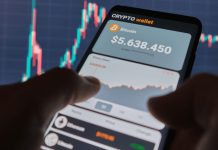Find me on Steemit: www.steemit.com/@heiditravels
Twitter: @blockchainchick
Instagram: @hheidiann
Bit.tube: RealCryptoTips
Thinking about purchasing a Ledger Nano Hardware Wallet? Browse their official website: https://www.ledgerwallet.com/r/67ef
Want to join coinbase to begin your crypto journey? Here’s a link to get free $10: https://www.coinbase.com/join/558828d
LINKS FOR ADDITIONAL READING FOR THIS VIDEO & ALL INFO IN TEXT DOWN BELOW
Naomi Brockwell: https://www.youtube.com/channel/UCSuHzQ3GrHSzoBbwrIq3LLA/videos
https://www.coindesk.com/decentralized-exchange-crypto-dex/
EtherDelta: https://mashable.com/2017/12/21/etherdelta-hacked/?europe=true#4CY._e0KbqqF
MyEtherWallet: https://cointelegraph.com/news/myetherwallet-warns-that-a-couple-of-its-dns-servers-have-been-hacked
ShapeShift New Policies: https://bitcoinmagazine.com/articles/shapeshift-will-now-require-basic-personal-details-new-membership-program/
Bancor’s Hack and Freeze: https://www.businessinsider.com/bancor-hack-ethereum-2018-7
Decentralized exchanges seem like a no brainer, but we’re still not seeing the kind of volume you’d expect from a much needed tool, and they still have a long way to go in fulfilling their purpose. But exchanges that are labeling themselves as decentralized are not always that. Centralization comes in different varieties, let’s explore this so we can all identify the weakness and demand better options.
Dex’s or decentralized exchanges have been a buzzword in this crypto space for several months now. The increase in KYC/AML identity requirements as well as the countless hacks and thefts that have plagued the popular centralized exchanges have certainly helped spotlight why decentralized exchanges are needed.
I can imagine that the idea is to facilitate increased decentralization as these exchanges scale. Even Bitcoin at the beginning was very centralized, only a few people were running nodes and mining. But there’s a very important detail that should not be overlooked or underestimated, and that is the fact that bitcoin was designed to become more decentralized as more people joined the network. It was not designed to be confined or to have limits on how decentralized the network could become.
I mention this because every crypto project or exchange begins in a centralized manner. The trick is to get past it and move on to the green pastures of decentralization.
So keep this in mind when analyzing cryptocurrency projects, especially when considering decentralized exchanges.
Here are some ways that an exchange claiming to be decentralized can prove itself otherwise:
Does it act as a custodian for your funds?
– Do you have to deposit your coins into a wallet on that exchange? Are you trading with your actual coins or are you required to deposit your coins and then issued IOU type tokens that the exchange is ultimately in control of?
If this is so, it’s certainly a form of centralization that requires you to trust that exchange to store your real coins in a way that hackers cannot reach them.
Does it host its services on a website?
– If so, you’ve now been warned that if this is the case, you better hope that they use secure web hosting services. If you’re not sure why this would be an issue, take the time after this video to research what happened to EtherDelta and MyEtherWallet. Both suffered attacks due to their reliance on certain weak web hosting services.
Does it have a public figure head/CEO (someone who can be pressured to require KYC info)
– I know it’s easy to slip into that sense of comfort knowing who exactly is the captain of the ship, but when we’re dealing with decentralized networks and the fact that their strength is found in decentralization, it’s not that much of a leap to understand that one person declared in charge is a weak point. Despite all the good that Erik Voorhees has done for this space, he is an unfortunate example of how this concept can dramatically effect the future of these exchanges and networks. If you’re not sure what I’m referring to, take a look at the recent changes ShapeShift has decided to undergo.
Can it control your funds or trades at all? (Ex. Bancor freezing trades)
– Bancor is a relatively well-known decentralized exchange built on the Ethereum network, yet this one has the ability to freeze trades. Despite the fact that they froze these tokens in order to prevent a hacker from attaining even more coins, the fact they were able to do this sounds like some centralized control if you ask me.
If it is a protocol (like Ethereum’s 0x) remember that those who build on top of these protocols aren’t required to adhere to decentralized best practices, or even to allow for their software to be open source.















In a word, Trust. Trust is probably the one thing keeping us exchanging volume on a DEX. A DEX will be required to demonstrate the code cannot be circumvented. A DEX operating on a trusted protocol like Ether, Tezos, or Boscoin I believe will have a real future rather than a 3rd party software DEX UI with unknown background.
always the some…all the money control by very few evil persons and a million of bots…
How do you feel about Bitshares?
I think DEX's have along way to go, but ABRA is pretty good, it's a little more expensive to trade, and they dont have a huge amount of options of coins yet. However I own my own keys, and everything is done through smart contracts, but it's a BTC wallet
The problem with Dex is that they are decentralize. Where do you go if your funds are stolen and who is to blame? Not the exchange, you are cause you put your money there. Bittrex and Binance all the way screw DEX. I don't care at least I can sue them if they steal my money and are regulated by the government.
Answer is… Fake volume. Lots of Bot Trades, and Manipulation, Front-running and Falsified numbers.
I miss the days of IDEX gems, they'll come again
Ease of use and Marketing are huge factors for DEX's still. The irony is because they are less liquid we don't want to trade on them yet. But we need to in order to increase Liquidity. It's a leap of faith right now until one DEX blows up like Coinbase.
I totally agree. Even more the part where people feel comfortable where there's a 'CEO'. There's no CEO for a dex, only a github, or better a Gitlab, so you canc heck the code
I don't like exchanges lying about there true nature, but having a 100% decentralised exchange with no governance model is archaic and won't work in real life. Bancor network does not have any governance at all and is completely decentralized. Bancor cannot “freeze trades” and has no control over user funds or wallets. The network token (BNT), on the other hand, has an embedded security feature that can be exercised in emergencies. Bancor has been completely transparent about this feature in BNT since before the TGE and documentation is available to prove this.
This emergency security feature in BNT has only been used once, and was completely successful in recovering stolen tokens from thieves — thereby protecting all token holders. I'd say that is a win-win. <3
Good video. Are you tracking the NEX team? Would be interesting to hear your thoughts.
Do you have business email?
There are better ways to edit
I agree bots control a large percentage of trading volume on centralized exchanges. They're autonomous and constantly move more funds than a person can. I also believe there may be some shady services that provide volume and price manipulation on centralized exchanges. DEXs rely on real people and liquidity, which at the moment we lack in decentralized exchanges. I think if more people see the value and security in controlling your own funds, dexs will have a bright future. I personally am a fan of switcheo even though the volume is very low and it only trades NEP5 tokens. I like it because its very user friendly and integrated with the o3 wallet.
Interesting video and view as usual. Thanks!
I would prefer using a decentralized Exchange any day of the week. Even if it's slower. But then again I HODAL
I have not used shape-shift nevertheless I was really disappointed to see that they bent to kyc demands
Great video . Any chance you can have a look into desico please . ?
And is that really you on Bittube and what do you think of it?
Heidi Can you do a video on the next dollar USD//C? that Circle and Goldman-sachs is sneaking in,
Soon you will see this.. USD, BTC, ETH, EUR, GBP, JPY KRW
Change to USD, USDC, BTC, ETH, EUR….Then this.. USDC, BTC, ETH, EUR….
the Banks are inserting themselves again in plain sight!